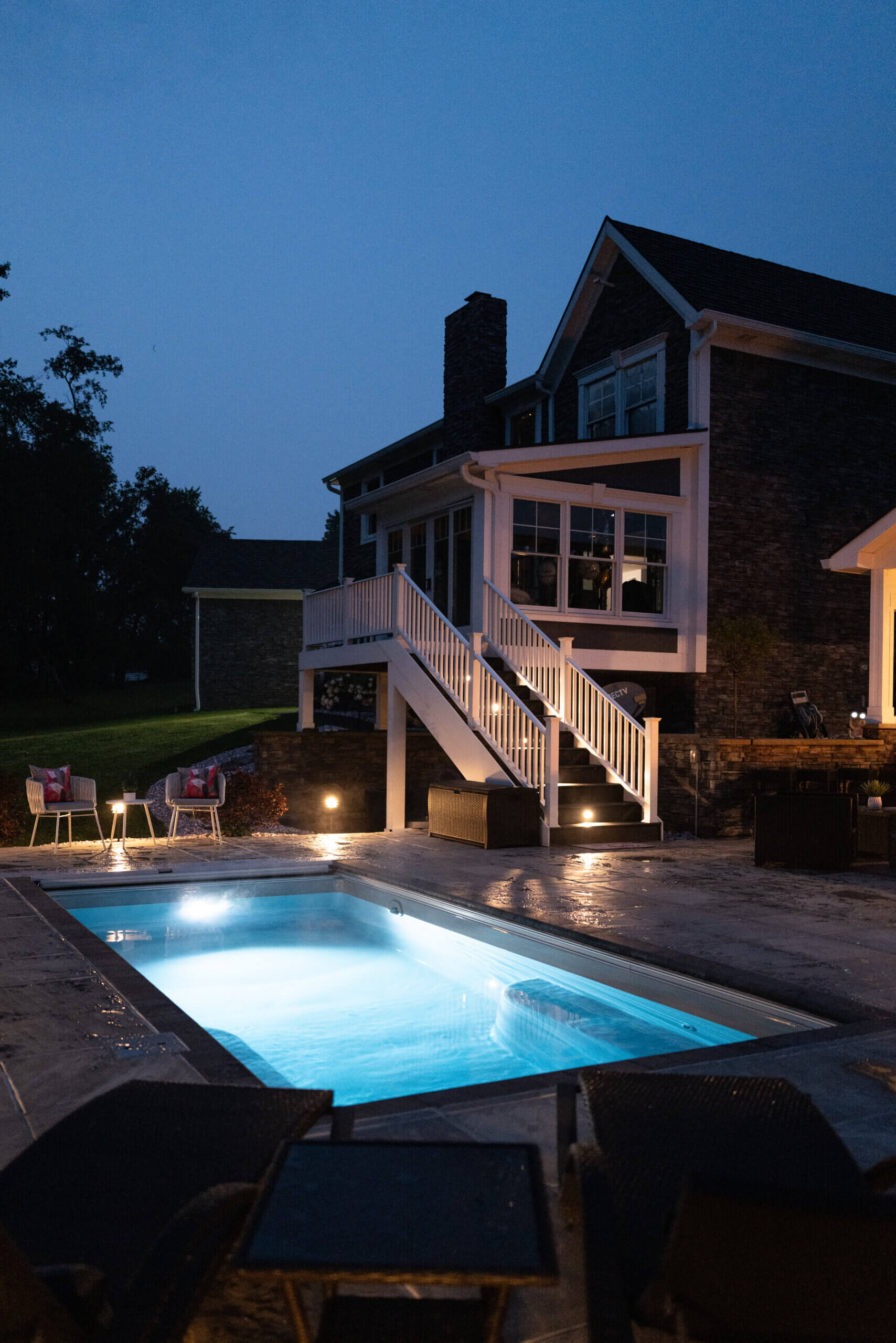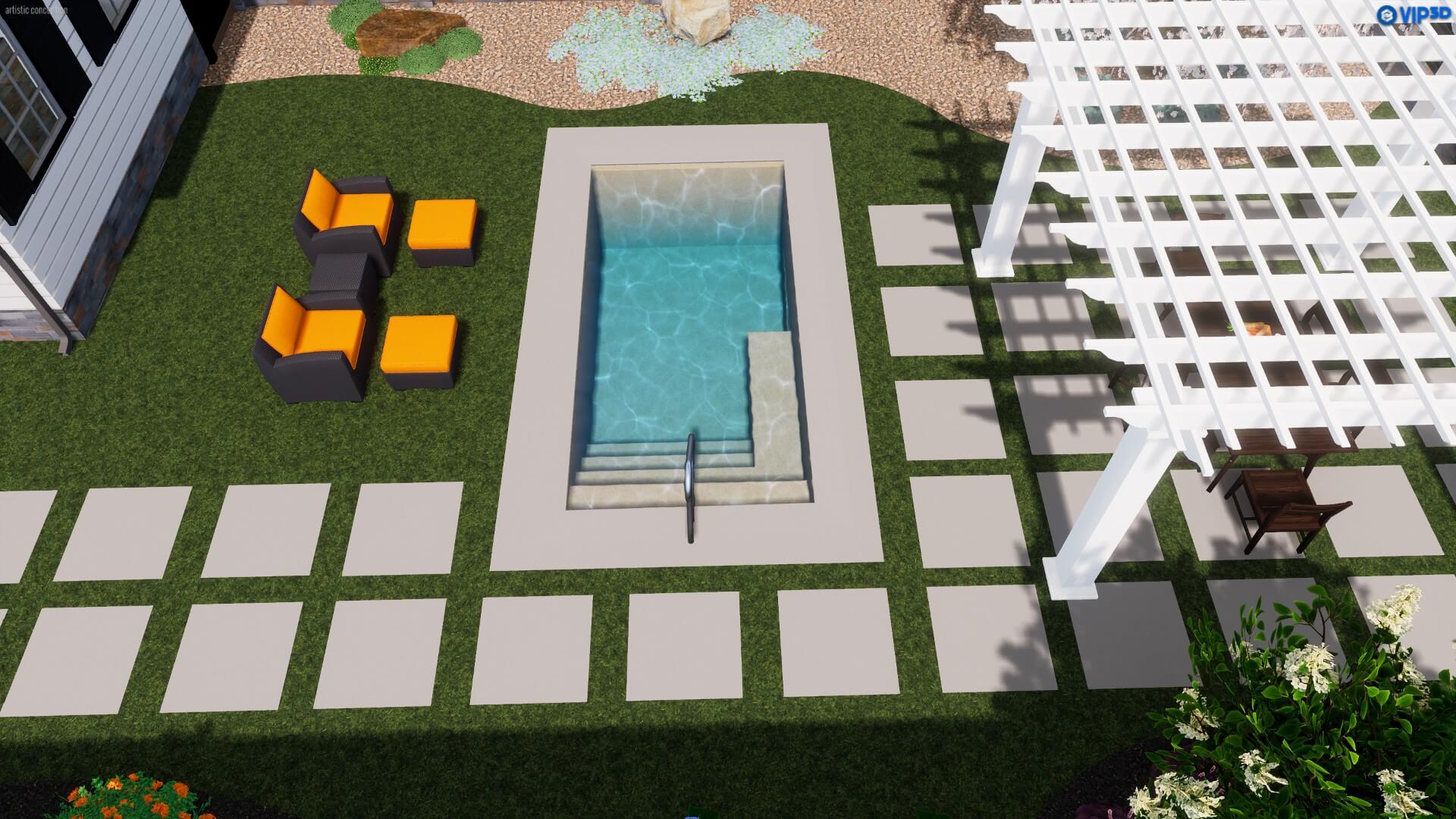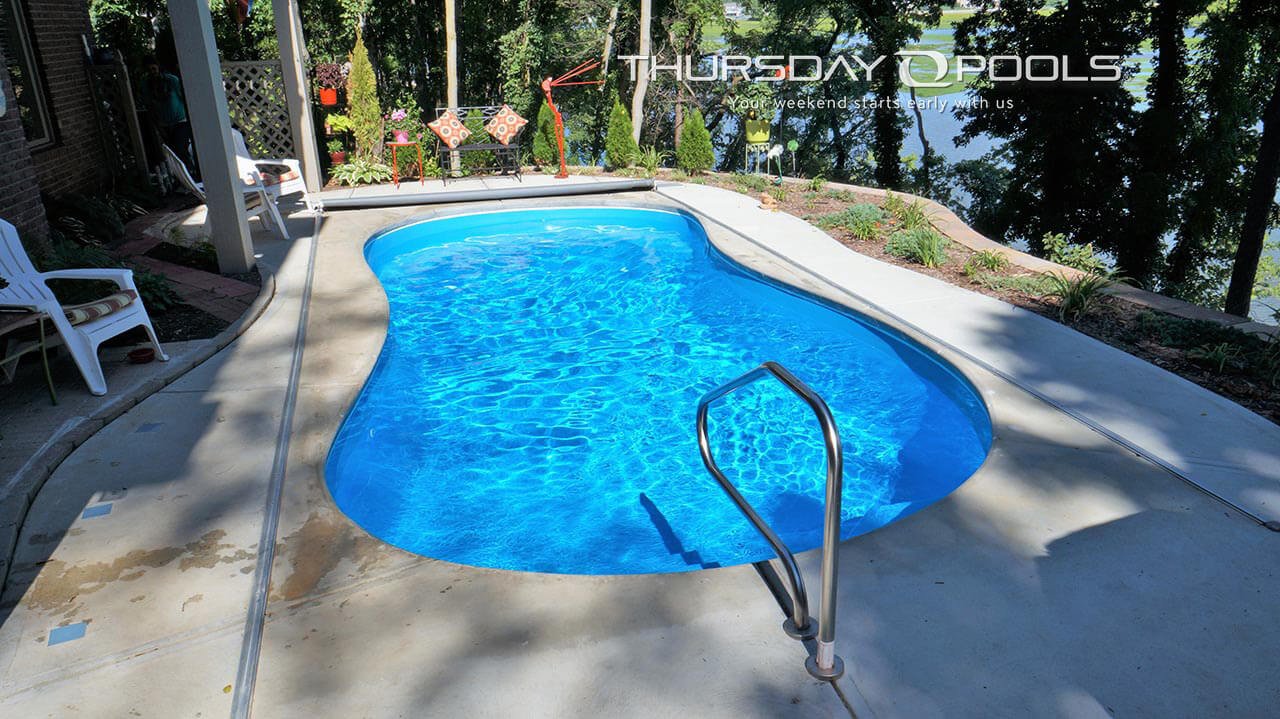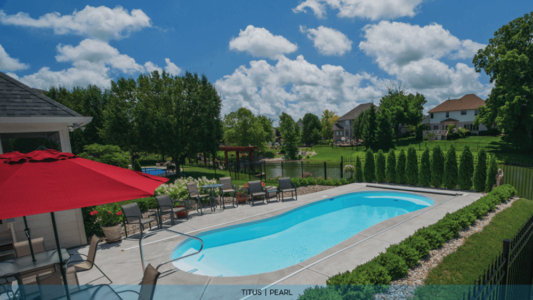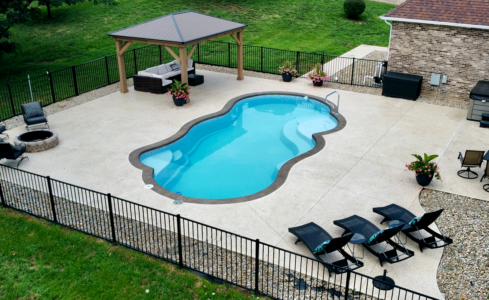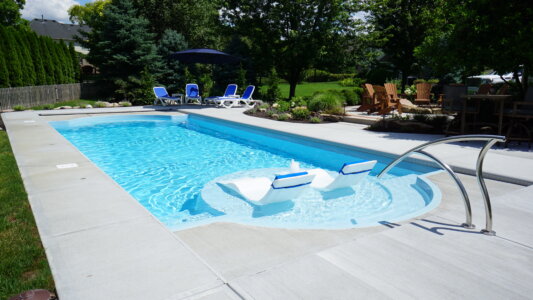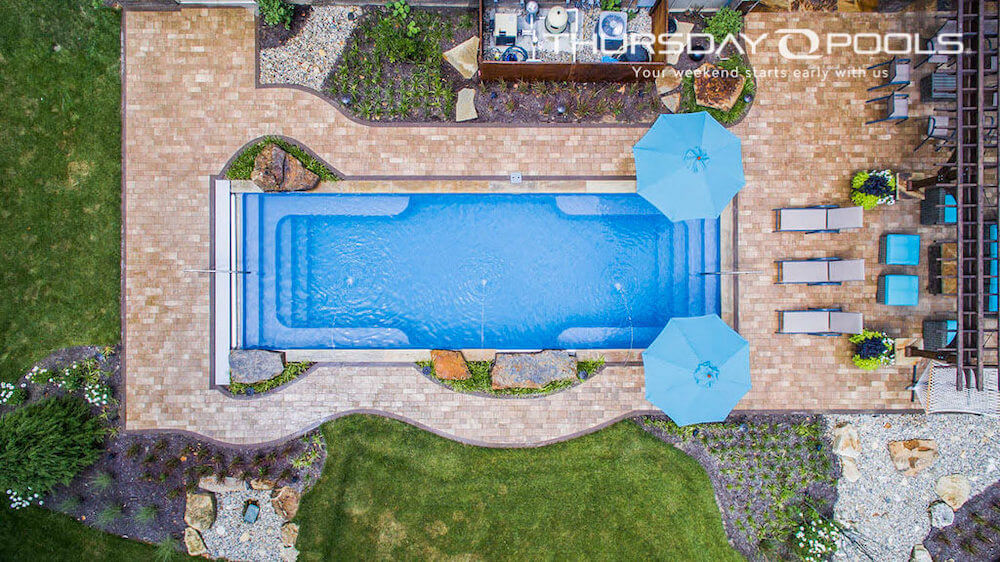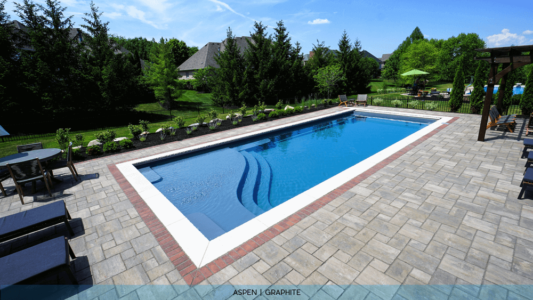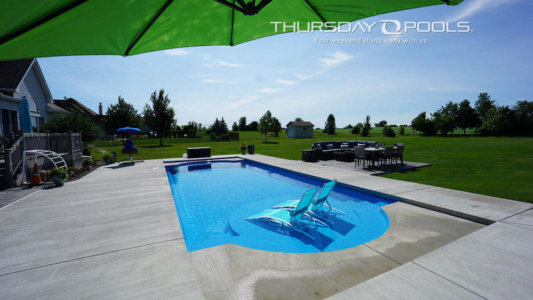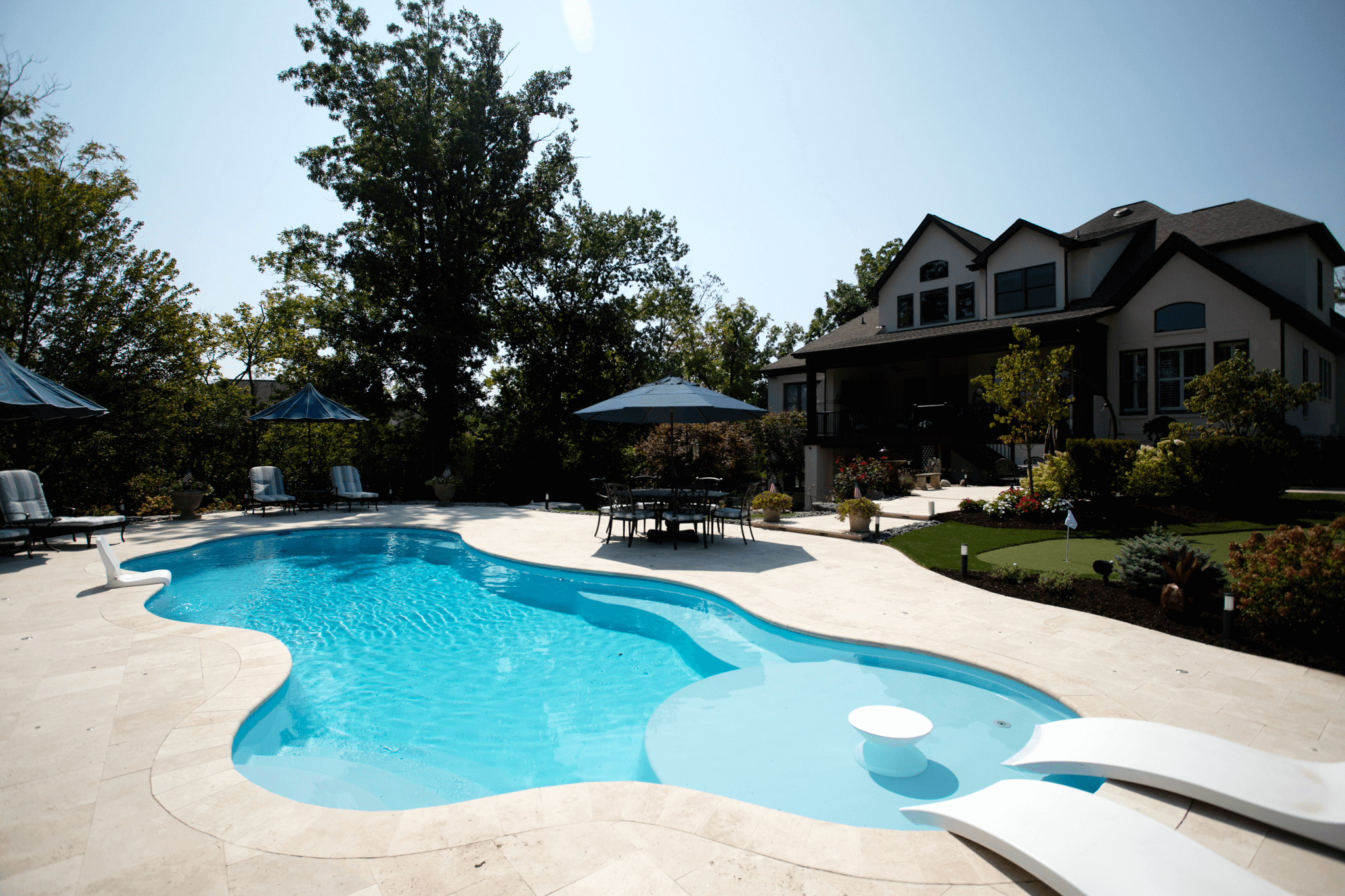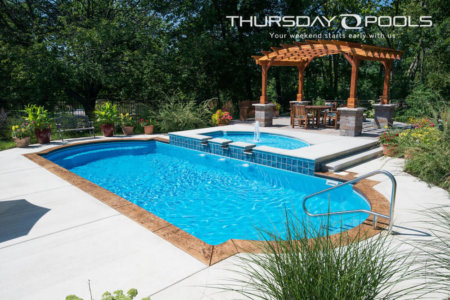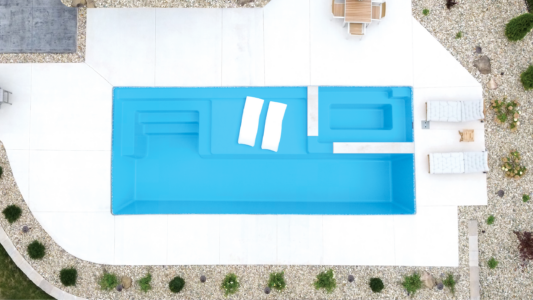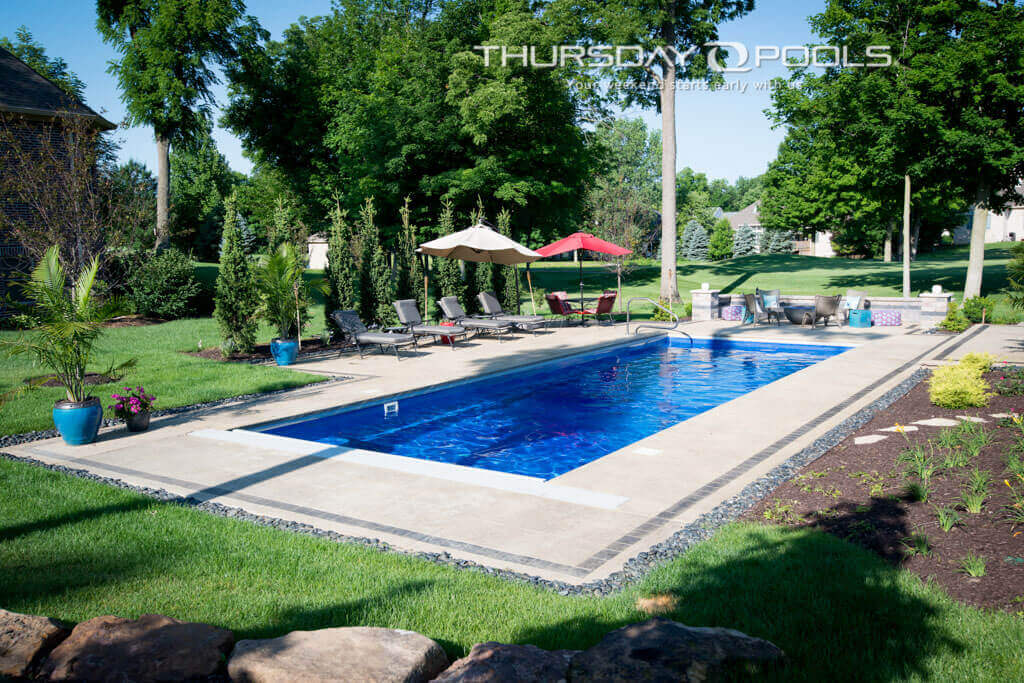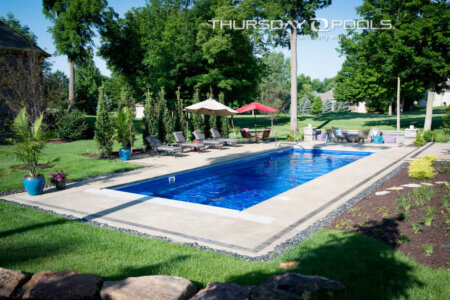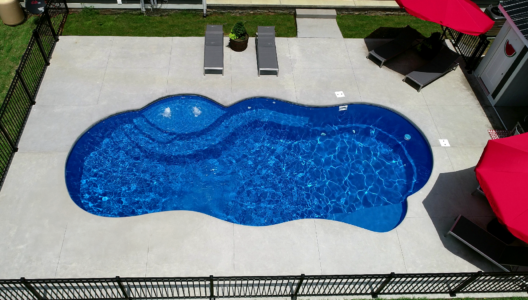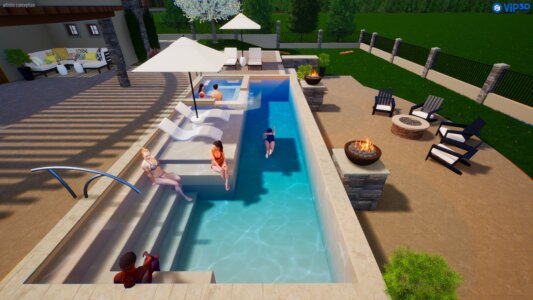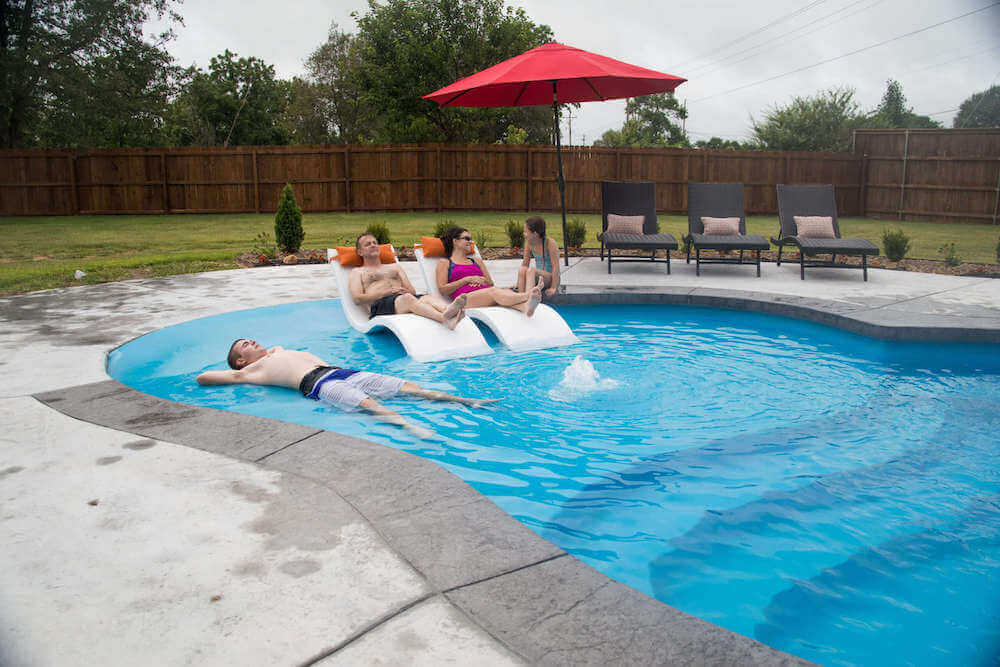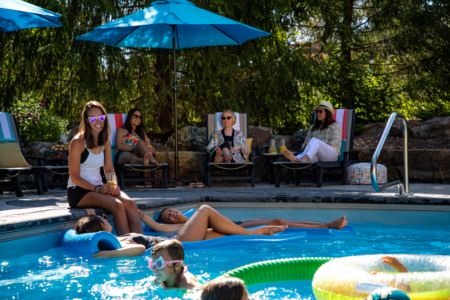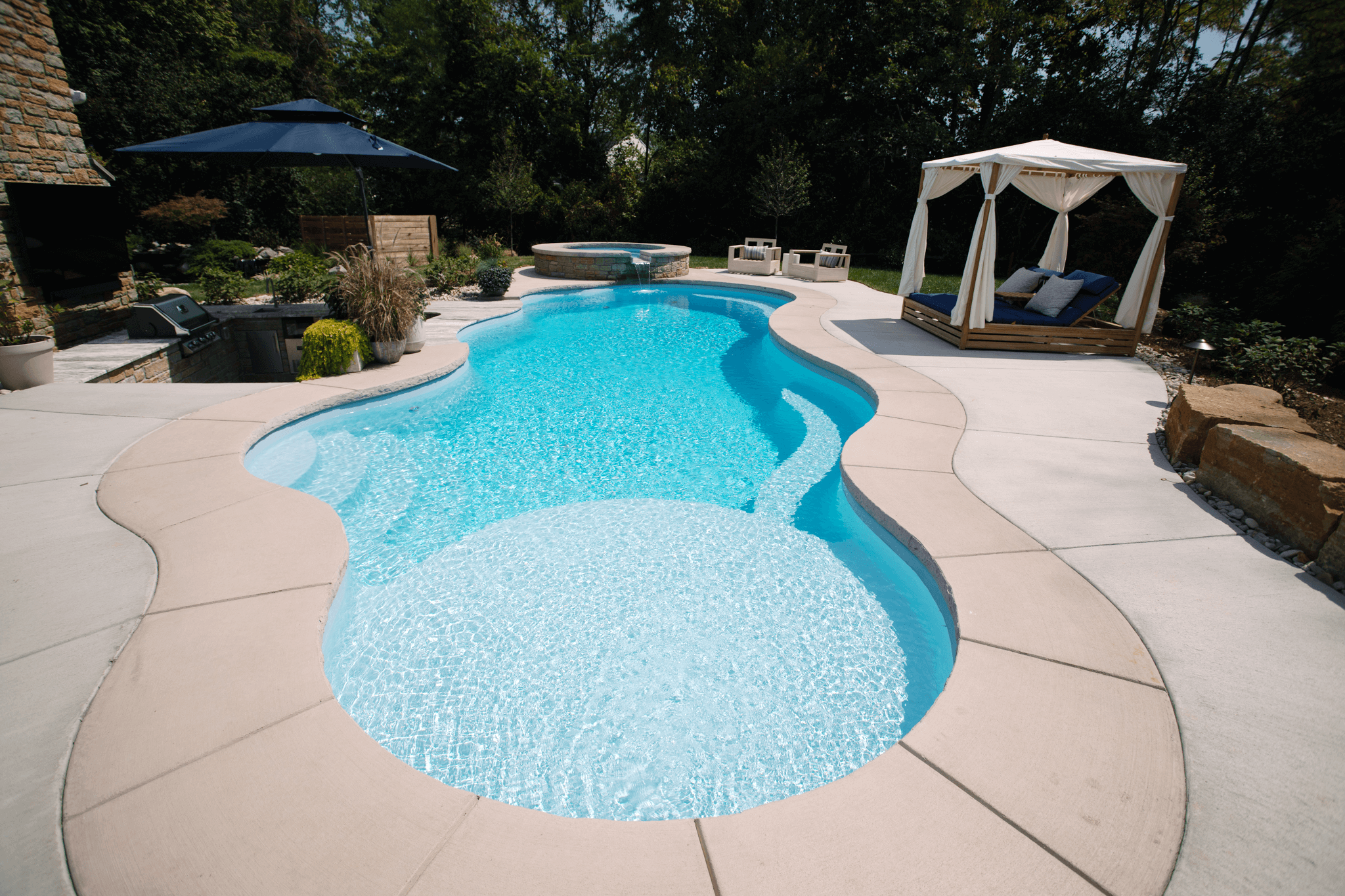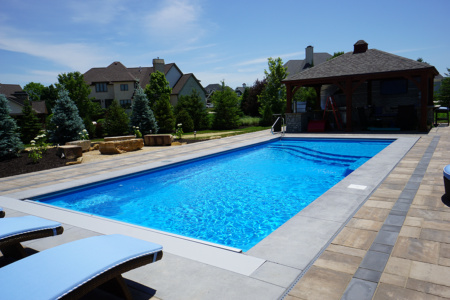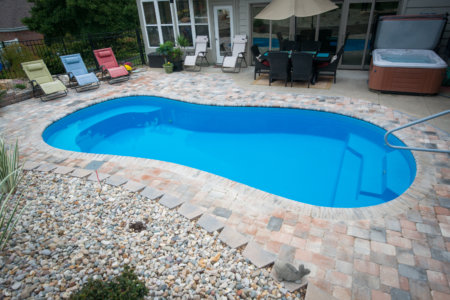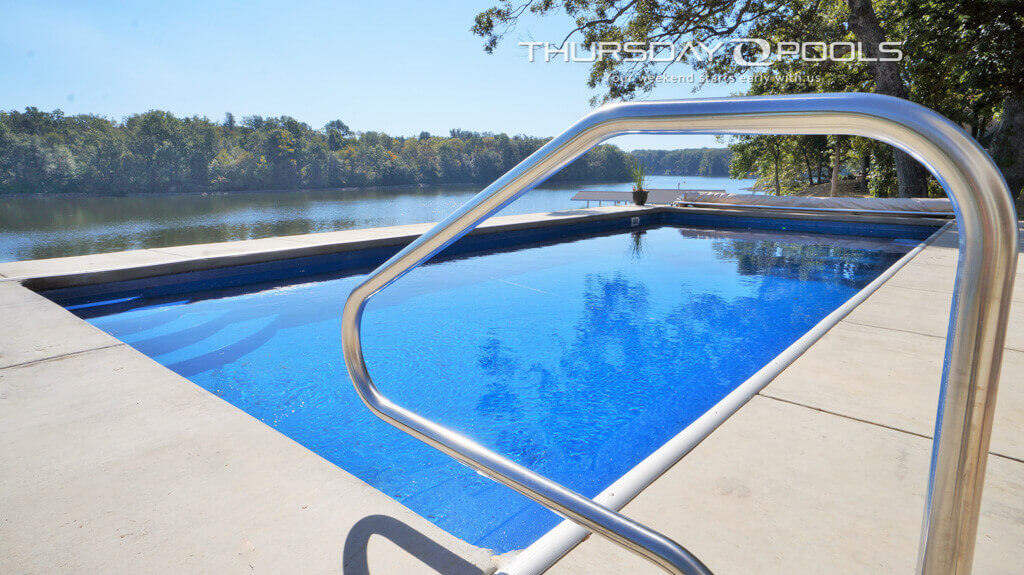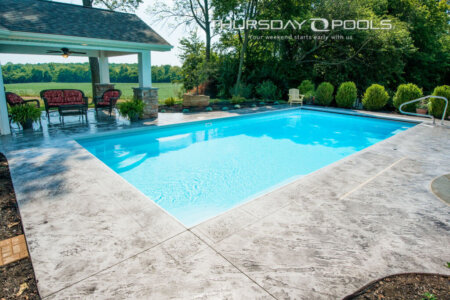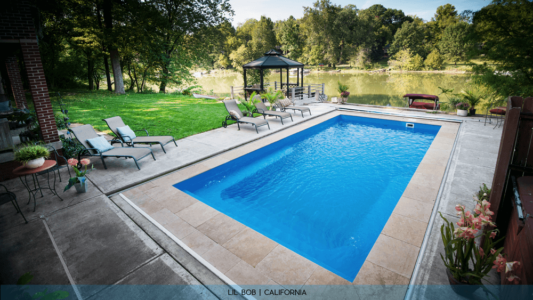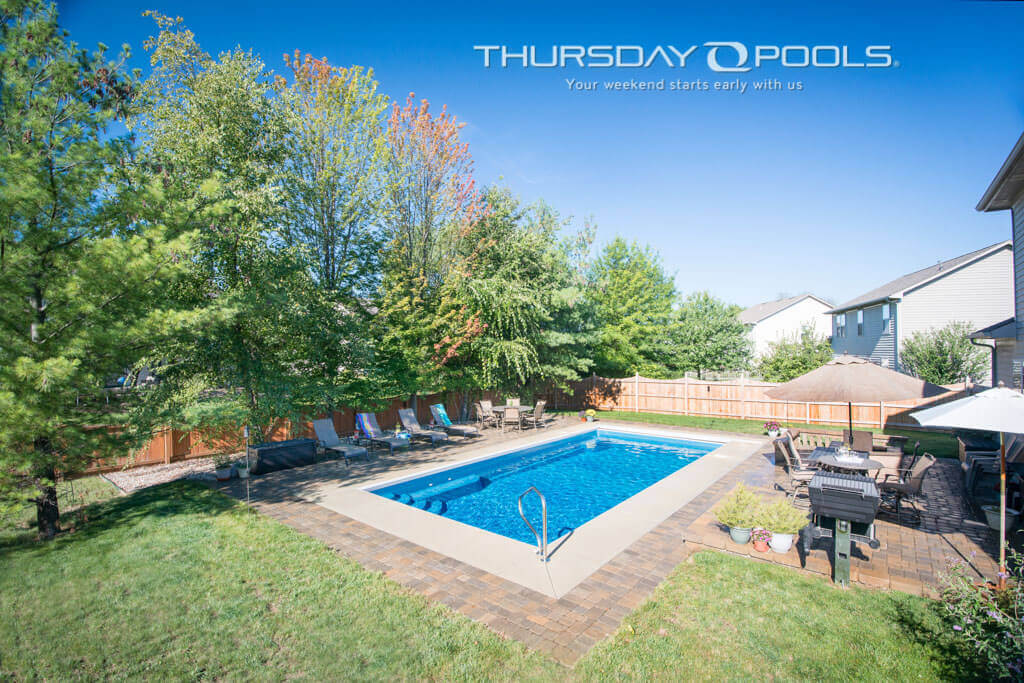From breezy coastal towns to leafy suburban neighborhoods, Delaware offers a backyard setting perfect for a fiberglass pool, especially when summer humidity sets in. But just like the state’s diverse landscapes, fiberglass pool cost in Delaware can vary widely depending on everything from your soil conditions and lot size to the custom features you choose to include. Whether you’re installing a pool in the historic heart of Wilmington, along the peaceful stretches of Kent County, or near the sandy shores of Sussex, design decisions and local geography can significantly influence your installation needs and overall investment.
Partnering with a Delaware fiberglass pool installer makes all the difference. A local expert who understands the ins and outs of the region’s permitting, site preparation, and design nuances will help keep your project under budget and on schedule.
Estimating the Cost of Your Delaware Fiberglass Pool Installation
Thursday Pools gathered essential insights through a 2025 survey of our trusted, independent dealers in Delaware to provide you with a clear understanding of the average cost of installing a fiberglass pool in the First State. Whether you’re just beginning to explore pool options in Wilmington or are ready to plan your Dover backyard upgrade, this is a helpful place to start. We aim to provide a realistic overview of what you can expect when budgeting for a fiberglass pool installation tailored to Delaware’s unique landscape and local market.
AVERAGE DELAWARE FIBERGLASS POOL INSTALLATION BY SIZE |
|||
|---|---|---|---|
| Pool Type | Small Fiberglass Pools | Medium Fiberglass Pools | Large Fiberglass Pools |
| Size Range | Up to 26 ft Long or 400 ft² | 26 to 34 ft Long or 400 to 600 ft² | 35 ft and Longer or 600+ ft² |
| Average Cost | $65,000 | $75,000 | $85,000 |
Average pricing is a helpful guide, but many specific factors, such as soil conditions, water tables, and site access, can impact your Delaware fiberglass pool’s total cost. Design preferences and add-ons like spas or lighting will also affect the final price. For the most accurate estimate, connect with a Thursday Pools dealer in Delaware who understands the local terrain and permitting process.
Delaware’s Most Popular Fiberglass Pools and Average Price Tags
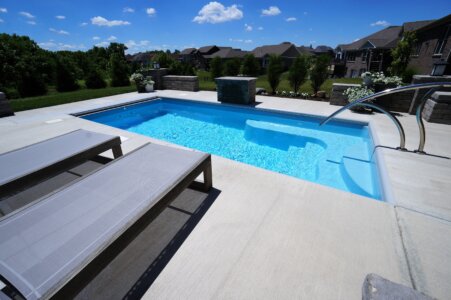
SEA TURTLE (9.5’ x 19.5’)
Compact, clever, and full of charm, the Sea Turtle is a favorite among Delaware homeowners working with smaller backyard spaces. At just less than 20 feet long, this pool may be small in size, but it doesn’t compromise on comfort. With integrated bench seating and a built-in tanning ledge, the Sea Turtle offers a relaxing space to soak, splash, and unwind. It’s an ideal solution for homeowners seeking the benefits of a fully featured fiberglass pool while maximizing a compact footprint.
According to our 2025 survey of Thursday Pools dealers in Delaware, the average cost to install the Sea Turtle or similar fiberglass pools less than 26 feet long or 400 square feet is 65,000.
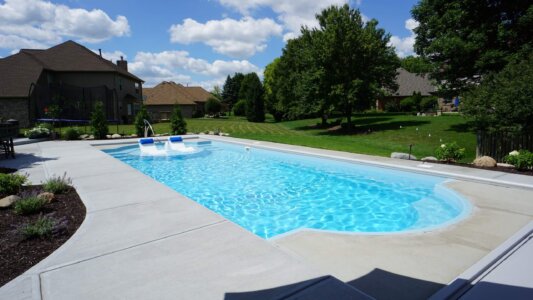
CATHEDRAL (14’ x 33’)
The Cathedral offers a timeless design that’s as elegant as it is family-friendly, making it a standout choice for Delaware homeowners who love to entertain or relax in style. With its classic, Roman-inspired shape, this medium-sized fiberglass pool seamlessly blends symmetry and sophistication with ample space for swimming and lounging. Wide entry steps at the shallow end double as a comfortable seating area, while the deep end is perfect for active swimmers or playful afternoons with the kids.
Based on our 2025 dealer survey, the average cost for a standard installation of the Cathedral or similar fiberglass pools measuring 26 to 34 feet in length or 400 to 600 square feet is $75,000.
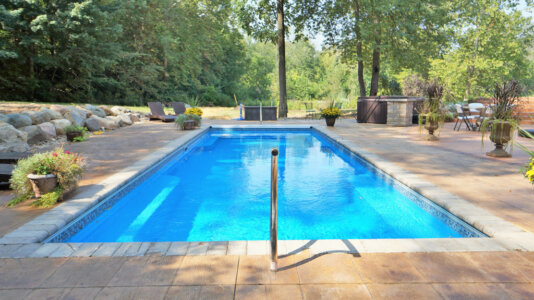
SPIRIT (13.5’ x 40’)
The Spirit is a favorite among Delaware homeowners with larger outdoor spaces who want the perfect mix of fitness, fun, and relaxation. Just less than 16 feet wide and stretching 40 feet long, this sleek fiberglass pool offers a full-length swim lane ideal for exercise. The tanning ledge and wraparound bench seating provide inviting spots to lounge and unwind. With its clean lines and open swim corridor, the Spirit suits both energetic pool parties and peaceful solo swims.
This design is especially popular in expansive backyards throughout communities like Greenville, Lewes, and Middletown, where there’s room to make a statement. According to our 2025 survey of Thursday Pools dealers in Delaware, the average cost to install the Spirit or other large models more than 35 feet long or 600 square feet is $85,000.
Preparing Your Delaware Backyard for a Pool Installation
Delaware’s diverse landscapes bring unique challenges when it comes to installing a fiberglass pool. Coastal spots like Rehoboth Beach and Lewes often feature loose, sandy soil that may require budgeting for additional reinforcement to keep your pool stable and prevent it from shifting over time. Inland areas such as Newark and Middletown typically have denser, clay-rich ground that can complicate excavation and demand specialized equipment.
The shape and slope of your yard also play a crucial role. Hillsides or uneven terrain may call for custom grading or retaining walls to create a secure, level base for your pool. In Wilmington or New Castle neighborhoods with narrow streets and sideyards or limited driveway access, installers may need to rent a crane to maneuver the pool into place safely.
Navigating these site-specific details can feel overwhelming, but teaming up with a Delaware-based pool professional ensures your project runs smoothly and avoids additional costly surprises.
| AVERAGE YARD-RELATED EXPENSES IN DELAWARE
|
|
| Excavating Sandy Soil | $500 |
| Excavating Clay Soil | $2,000 |
| Excavating Rocky Soil | $1,000 |
| Above-Average Slope Requiring Extra Grading | $4,100 |
| Limited Yard Access | $2,000 |
Delaware Pool Fencing Laws and Safety Guidelines
Unlike some states with a single statewide code, Delaware’s pool safety regulations include a mix of state guidelines and local building codes, meaning the exact requirements can vary depending on where you live. These rules prevent accidental pool access, especially by young children, and help create a safe and secure environment for everyone to enjoy.
In most parts of Delaware, laws dictate pool barriers are mandatory and must meet certain minimum standards. Regulations typically include fencing at least 4 feet high and free of openings children could squeeze through, with self-closing and self-latching gates that open outward from the pool area.
Delaware’s pool fencing requirements differ across the state’s cities and neighborhoods. Some areas require stricter specifications regarding fence placement, gate hardware, pool alarms, or secondary barriers around spas and hot tubs.
To avoid delays, compliance issues, and additional costs, it’s important to check with your local building department or homeowners association before beginning a fiberglass pool project. Working with a local pool professional experienced in Delaware’s safety codes can help ensure your project meets all requirements and that your backyard pool is as safe as it is enjoyable.
According to Thursday Pools’ 2025 survey, dealers in Delaware report the cost of installing a 300-foot fence is $9,100.
Upgrade Your Delaware Fiberglass Pool with In-Demand Add-Ons
Personalizing your fiberglass pool with the right add-ons can transform your Delaware backyard into a true sanctuary tailored to your lifestyle with comfort and style. While these upgrades aren’t necessary, they can transform your pool from a simple place to swim into a complete backyard experience. Many Delaware homeowners favor the following popular options, with pricing insights on the top upgrades courtesy of our 2025 survey of Thursday Pools dealers in the state.
Heating and Water Care Essentials
Pool Heater Average Cost in Delaware: $4,900
Delaware’s cooler spring and fall seasons make a pool heater a popular investment. Extend your swim season and maintain ideal water temperature in the spring and fall months.
UV Filtration System Average Cost in Delaware: $2,300
Environmentally conscious homeowners can reduce chemical usage and improve water clarity with a UV system that targets harmful microorganisms.
Automatic Pool Cleaner and Vacuum System Average Cost in Delaware: $1,300
Keep your pool effortlessly clean with a robotic or suction-side cleaner that does the hard work while you relax.
Pool Automation and Smart Control System Average Cost in Delaware: $2,900
Operate your pool’s heating, lighting, and filtration systems from your smartphone or tablet. Intelligent pool control adds convenience and energy efficiency.
Pool Cover Solutions
Automatic Pool Cover Average Cost in Delaware: $16,000
Enhance safety and minimize maintenance with a fully retractable cover that opens and closes with the push of a button.
Manual Safety Pool Cover Average Cost in Delaware: $4,400
Manual covers are a reliable, budget-friendly solution that keeps debris out and adds an extra layer of protection for children and pets.
Pool Decking & Landscaping in Delaware
Concrete Patio (Approx. 1,200 sq. ft.) Average Cost in Delaware: $9,200
Concrete remains a durable and cost-effective choice that withstands Delaware’s seasonal changes with minimal upkeep.
Paver Patio (Approx. 1,200 sq. ft.) Average Cost in Delaware: $16,000
Pavers offer a customizable, slip-resistant finish with timeless appeal that’s great for coastal aesthetics or colonial-style homes common in the region.
Landscaping Average Cost in Delaware: $4,400
Simple upgrades like garden beds, mulch, decorative rock, and lighting can significantly enhance your pool’s surroundings and appeal.
Signature Features & Elegant Accents
Specialty Waterline Tile Average Cost in Delaware: $4,400
Elevate your pool’s design with high-end waterline tiles that offer color, shine, and durability through fluctuating temperatures.
LED Pool Lights Average Cost in Delaware: $1,371 per light
Customize your evening ambiance with energy-efficient LED lighting in white or color-changing styles.
Deck Jets Average Cost in Delaware: $800 per jet
Deck jets arc water streams into your pool, adding motion and a soothing sound element.
Bubblers Average Cost in Delaware: $2,500 per bubbler
Perfect for tanning ledges, bubblers add a gentle bubbling effect that’s relaxing for adults and fun for kids.
Cascading Waterfalls Average Cost in Delaware: $6,800
Create a serene backyard escape with a built-in waterfall that adds movement, sound, and a spa-like vibe.
Add-On Spa Average Cost in Delaware: $13,800
Unwind with an attached spa that complements your pool with hydrotherapy benefits and a striking visual spillover feature.
Pool Slides and Diving Features
Simple Pool Slide Average Cost in Delaware: $5,500*
Bring playful energy to your backyard with a classic slide design that’s safe and fun for kids of all ages.
Deluxe Pool Slide Average Cost in Delaware: $8,500*
Add a thrill factor with a taller, curvier slide for bigger kids and adventurous adults.
Diving Board (Type 1 Diving Pools Only) Average Cost in Delaware: $3,000*
With certified diving pools only, a diving board can be a fun addition. Always prioritize professional installation and proper safety planning.
*Thursday Pools recommends against slides or diving boards for safety reasons. Not all fiberglass pool models can safely accommodate these features, and improper installation can lead to serious injury. Always consult your builder to ensure your pool meets all safety and code requirements. Homeowners are responsible for using these features responsibly and ensuring compliance with local laws.
Make Your Backyard the Heart of Your Delaware Home
Installing a fiberglass pool in Delaware isn’t just about beating the summer heat. It’s about creating a space to make memories, grow stronger connections, and make luxurious outdoor living part of your everyday rhythm. From quiet evenings lounging in a Wilmington backyard to fun-filled weekends in Dover or adding a touch of luxury to a coastal escape near Rehoboth Beach, the right pool brings lasting comfort, beauty, and value to your home.
Delaware’s charm lies in its blend of quiet coastal towns, vibrant neighborhoods, and changing seasons. Just like the state’s landscapes, every backyard has its own personality. That’s why partnering with a local, knowledgeable Thursday Pools dealer is so important. From evaluating your yard’s layout and drainage to recommending pool shapes and features that suit your lifestyle and budget, your dealer will guide you through each step with confidence and care.
Ready to take the first step toward your dream backyard? Start by checking out the Thursday Pools Pool Cost Calculator to get a personalized estimate, then explore the Pool Selector Tool to discover models that match your space and style. When you’re ready, connect with a trusted Delaware dealer who can help you turn your vision into a relaxing, custom-designed outdoor retreat in your backyard.
Get Your Personalized Estimate
